5 Takeaways from the Hamburg “World” Championship
The return to racing last weekend provided some interesting insights on what we can expect in Tokyo and years beyond
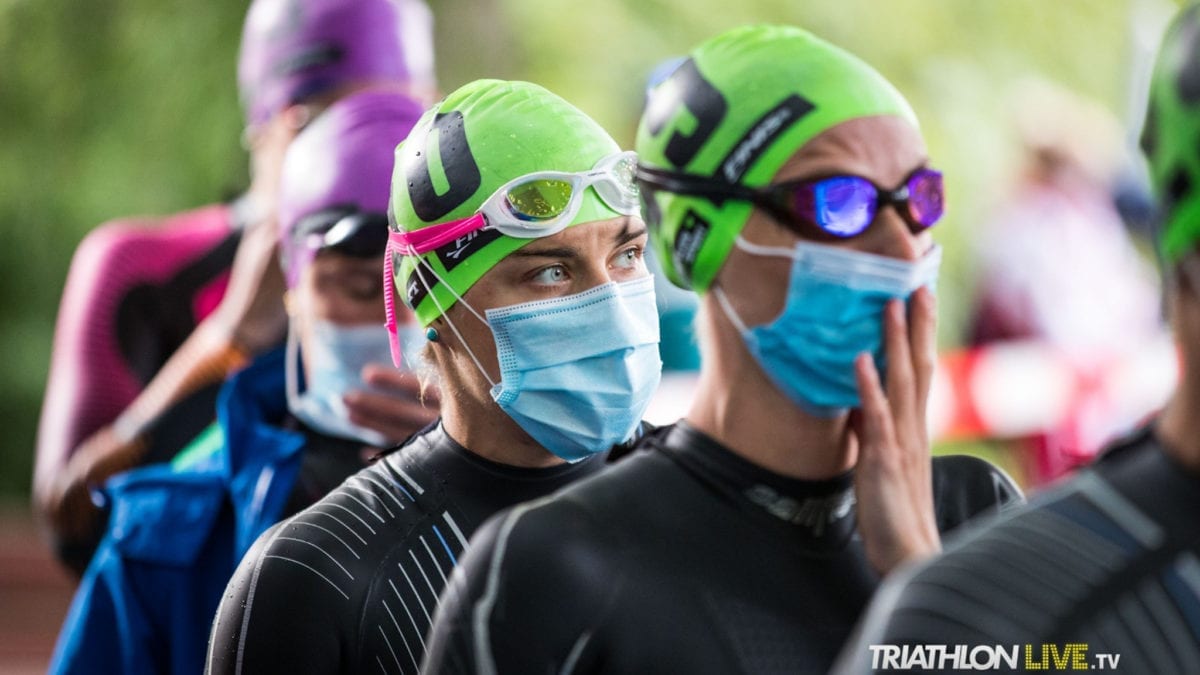 Photo by:
World Triathlon/ Tommy Zaferes
Photo by:
World Triathlon/ Tommy Zaferes
Yeah, you’re probably getting sick of seeing the “” around the World when we refer to last weekend’s race in Hamburg, but remember that we’re a Canadian publication and the ITU was fully aware that athletes from Canada, Australia, New Zealand and Mexico, amongst others, weren’t able to compete in Hamburg. So, from where we’re sitting, last Saturday’s race wasn’t a true world championship.
Besides, no less an expert than two-time Olympian Sarah True agrees with us.
Related: Sarah True calls out the ITU for WTS Hamburg the world championships
That said, it sure was fun to see live racing again.
Here are a few insights from last weekend’s racing:
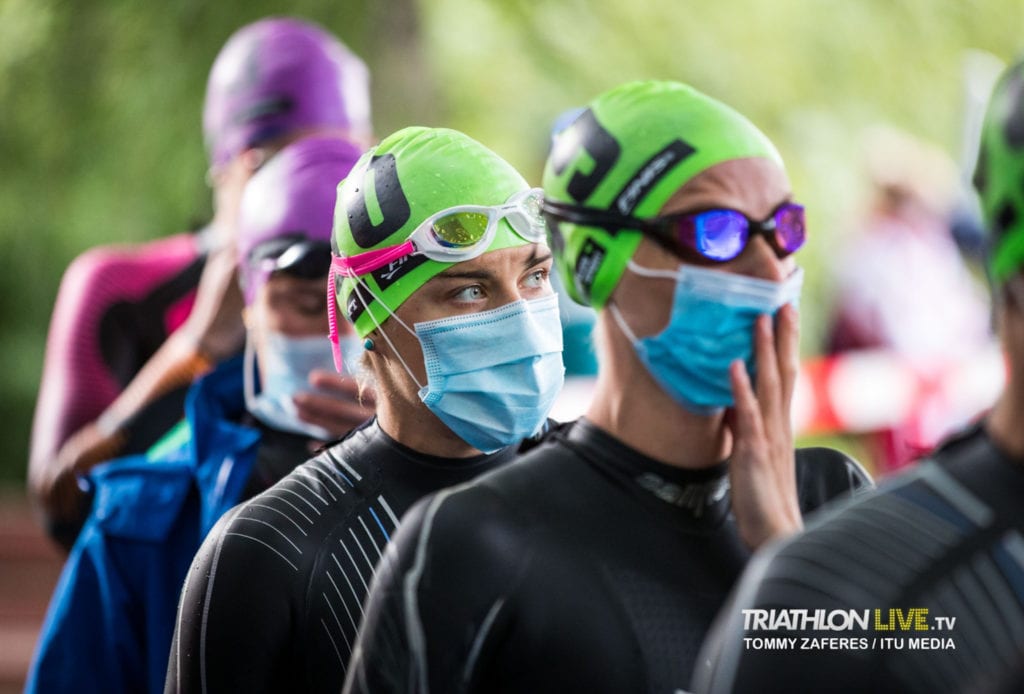
1. This elite racing thing might be able to work
Over the last few days the IOC and the Tokyo event organizers have made it abundantly clear that they intend to run the Olympic Games next year “with or without COVID.” Heading into the weekend, I admit I was skeptical. Watching the racing in Hamburg, though, it gave me some hope that there might be a way to have people compete, while keeping themselves and those around them relatively safe. Will I be able to say the same thing in two to three weeks if athletes, staff or volunteers from Hamburg contract the cornavirus? Probably not. But the endless message from athletes who did get to compete on the weekend was that it was amazing to be able to race, and the tireless work to make that happen was much appreciated. The athletes seemed to feel the same at the Ironman events in Poland, Estonia and France. We’ll see how long it can be sustained, but at least we’re giving something a shot, and hopefully we can learn from these experiences to be able to bring back racing again.
Here’s my big question around Tokyo, though. Will the organizers be ready to run the Games without spectators? Will the IOC pitch in to help with the additional costs to make the Games happen and to help defer the added losses that will be incurred without any ticket sales?
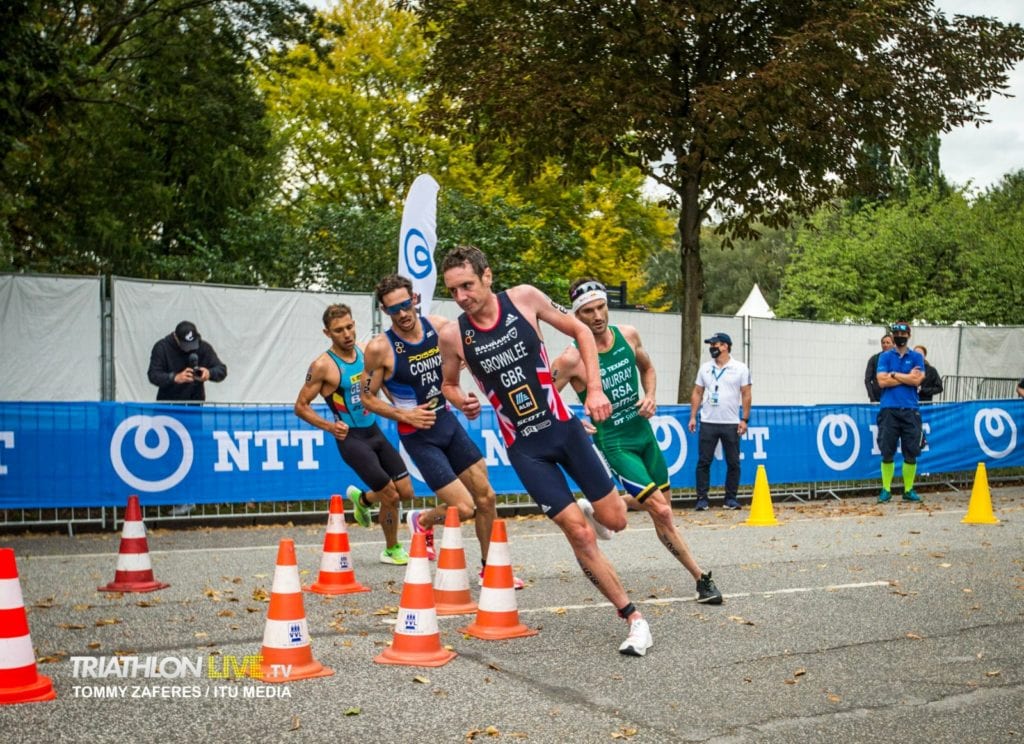
2. Alistair Brownlee could very much contend for a third gold medal
For many this is likely not much of a takeaway, more of a given. The London and Rio winner has moved to half- and full-distance racing over the last few years – mostly with a lot of success. Sure, he hasn’t “won” a world title at either discipline, but he was on the podium at a race many consider to be the greatest distance race of all time (Ironman 70.3 World Championship in South Africa in 2017) and finished second at the 70.3 worlds last year. While Kona didn’t go super well last year, he bounced back to set a new course record at Ironman Western Australia.
Over the sprint distance on Saturday, Brownlee led the way out of the water and was the most aggressive rider in the bunch of eight that broke away. Even though he fell back during the run and would take ninth, he still posted a 14:59 run split. Double the distance in Tokyo, give him more of a chance to drop more folks from the lead pack on the bike, and with a bit more focus on his run speed, and Brownlee suddenly looks very much like the dude who took gold.
And I haven’t even mentioned the fact that he bounced back from Saturday’s race to win in Helvellyn about 14 hours later.
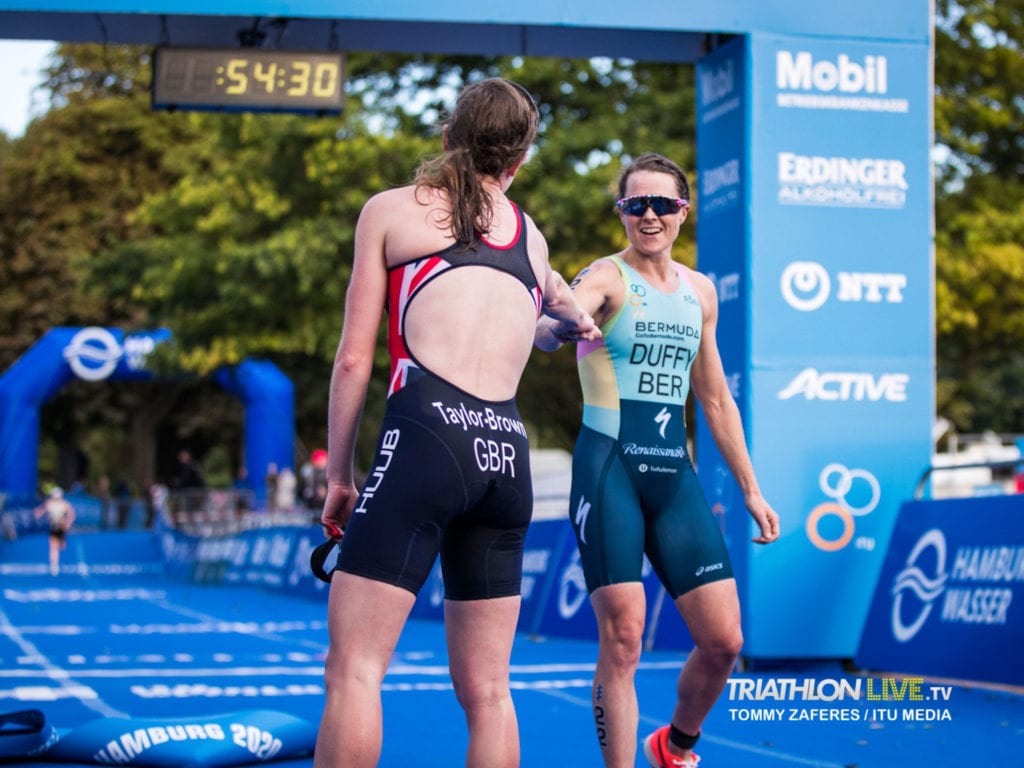
3. Watch for Georgia Taylor-Brown, and Flora Duffy
A class act in so many ways, Taylor-Brown was quick to say that she didn’t feel like Saturday’s race was a “true” world championship and that, in her mind, Katie Zaferes would still be the one defending the world title next year. It is not always the case, I know, but that post-race interview proved to me that, quite often, great champions are great people.
Great champions also run like Taylor-Brown did on the weekend. She truly made it look effortless as she ran away from some of the sport’s greatest athletes. Just over a year ago Taylor-Brown and countrywoman Jessica Learmonth should have finished first and second at the Tokyo Test Event, but got DQ’d for trying to tie. The two are excellent in all three disciplines, but Taylor-Brown is definitely the smoother of the two when it comes to the run.
After years of injury issues, though, Flora Duffy is certainly on the right track. The only thing separating her from her old self was that breakaway ability on the bike. If she can figure out how to keep running as well as she is, while also retaining the cycling dominance we’re used to seeing, the right tactics could finally give her that elusive big day she’s waited for. Will it come in her fourth Olympic go?
All of which could be moot if Katie Zaferes manages to get back on the roll of impressive racing she’s enjoyed over the last year and a bit.
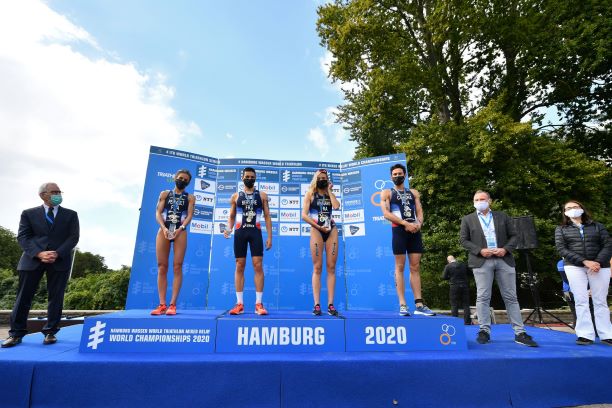
4. Depth is everything in the Mixed Relay … and France has a lot of that
As much as I was impressed by Alistair Brownlee after the weekend, you have to think that Vincent Luis will have the biggest target on his back in Tokyo. The guy won two Grand Finals before taking the world title last year by playing the game and racing consistently at all the WTS events rather than coming up big at the final event. He looked remarkably in control on Saturday, too.
So France has possibly the best short-course triathlete on the planet, and he wasn’t even part of their Mixed Relay gold medal team. And, yes, I get that Australia, who are always a huge power in the Mixed Relay, and New Zealand, and yes, us Canadians, weren’t there, but France has won the last three world titles in this event. They have interchanged six different athletes at the worlds, all with the same result.
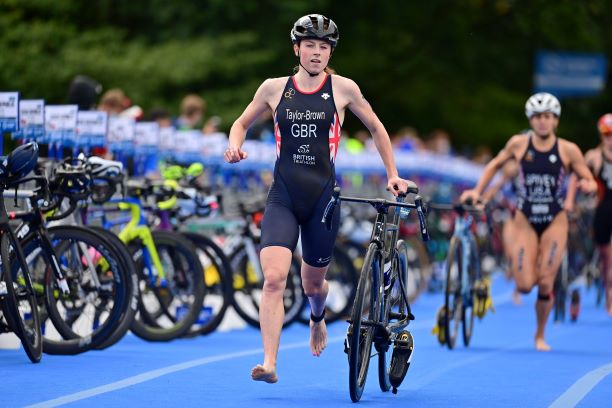
5. It’s never been more important to be really good at all three sports
Yeah, tell you something you don’t know, right? But its becoming very apparent that the days of catching up from the second pack on the bike are done for a while. Who was the most aggressive cyclist on the Hamburg course? The same guy who led out of the water. Flora Duffy broke her finger earlier this year, missed a bunch of swim training, and still came out of the water close enough to the front to be able to drive the lead pack for much of the race.
Sure, you can do well at a WTS event if you’re not in the lead group out of the water, but based on what I’ve seen over the last few years and had reaffirmed on the weekend, is that if you want to win, you need to be more than proficient in all three. Who were the three women pushing the pace on the bike in Hamburg? Taylor-Brown, Duffy and Learmonth, the three folks on the podium. It looked like Alistair Brownlee backed off a bit on the bike to ensure his brother, Jonathan, didn’t get dropped from the lead group. But Luis, Leo Bergere and Vasco Vilaca weren’t afraid to work on the bike, and those three ran away from everyone else to make up the podium.
Sure, there are going to be races when the chase group does make up time on the breakaway group, and other contenders, especially the strongest runners, come into the mix. I just think that’s going to become a rarity in the future, especially after the Tokyo Games when many of those athletes move up to the half-distance to continue their careers.
